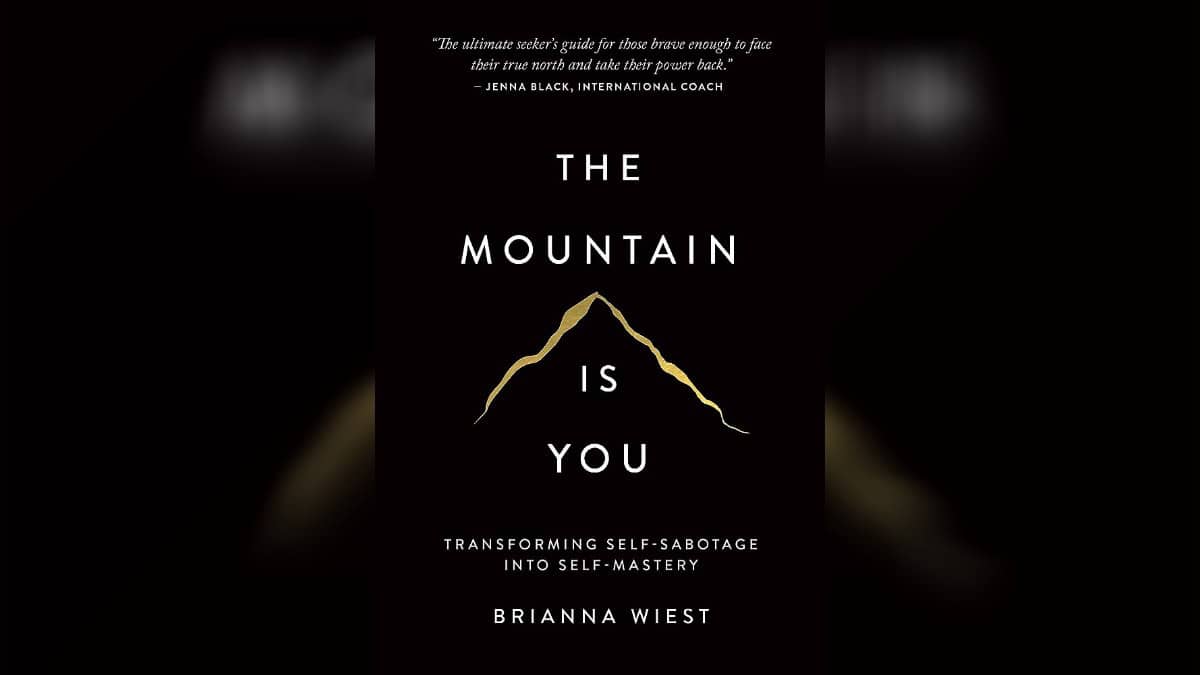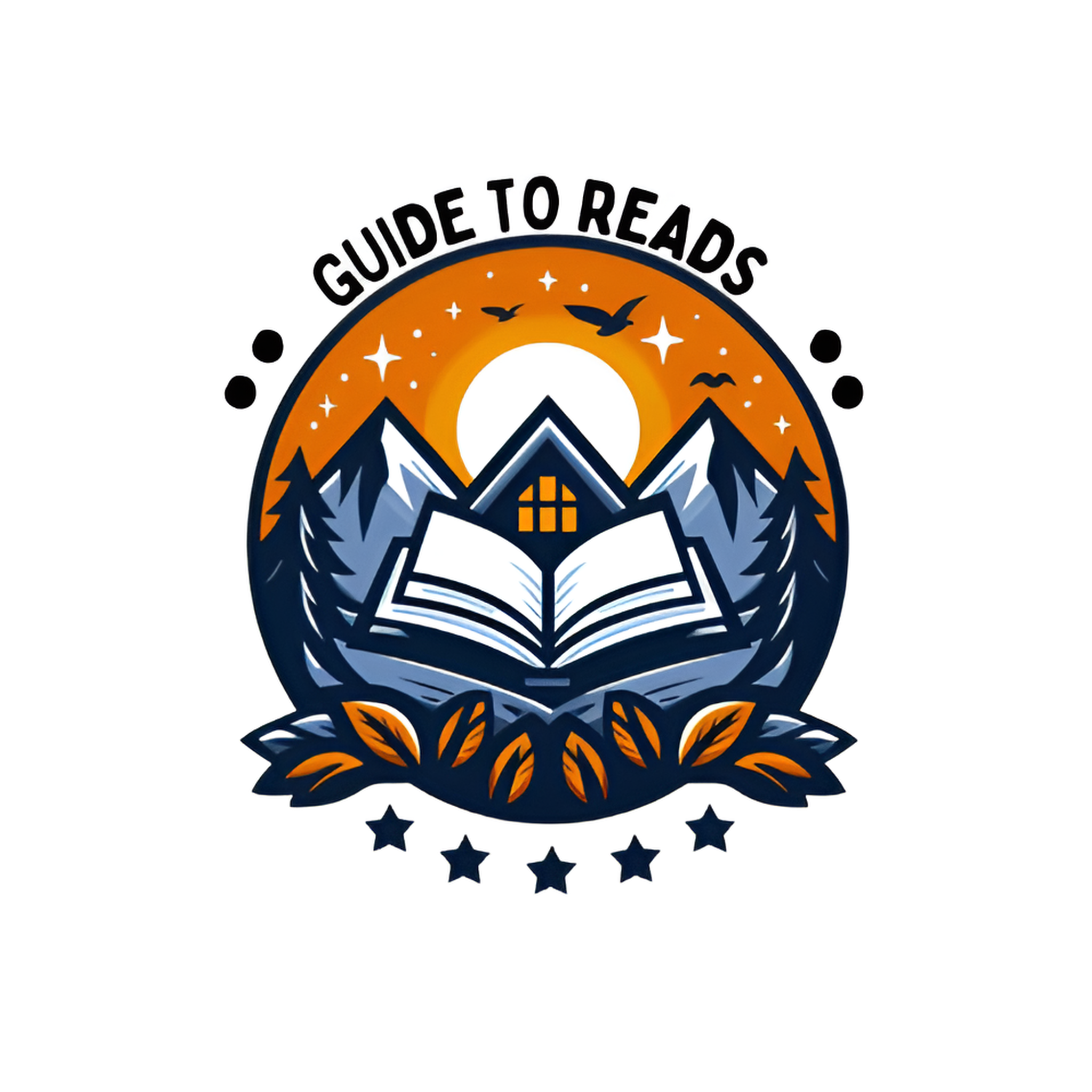« The Mountain Is You: Transforming Self-Sabotage Into Self-Mastery » is a powerful book that delves into the depths of self-discovery and personal transformation. In this review, we will explore the profound insights and strategies shared in the book, guiding readers on a journey to overcome self-sabotage and unlock self-mastery. Join me as we uncover the transformative wisdom of « The Mountain Is You. »
Understanding « The Mountain Is You »
« The Mountain Is You » by Brianna Wiest is an empowering and introspective book that delves into the concept of self-sabotage and the transformative journey of self-improvement. Wiest, known for her profound insights into human behavior and emotional well-being, explores the internal barriers we often create that prevent us from reaching our fullest potential.
The book is structured around the metaphor of a mountain, representing the challenges and obstacles that stand in the way of our personal growth. Wiest argues that these « mountains » are often self-imposed and that by understanding and overcoming them, we can achieve significant breakthroughs in our lives.

Wiest’s writing unpacks complex psychological concepts in a clear, thoughtful and deeply resonant manner. She blends psychological insights with practical advice, encouraging readers to confront their inner struggles and transform them into opportunities for growth. This approach makes the book particularly effective in helping readers recognize patterns of self-sabotage, understand their roots, and develop strategies to overcome them.
Wiest recognizes that personal growth is an ongoing journey, one that requires perseverance and compassion for oneself. By framing challenges as opportunities to learn rather than obstacles to defeat, her book empower readers to embrace both success and « failure » as integral parts of development. « The Mountain Is You » is a must-read for anyone looking to better understand themselves and take control of their personal growth journey.
- Empower Your Life: 5 Must-Read Self-Help Books for Personal Growth
- Top Books for Boosting Intelligence and Knowledge: Unlocking Your Intellectual Growth
- A Review of What Happened: Hillary Clinton’s Candid Reflection on the 2016 Election
- Reach Your Dreams: Essential Books for Achieving Goals
Key Themes and Insights in « The Mountain Is You »
Identify behaviors and thought patterns that undermine your success:
Awareness is the first step in addressing and transforming these self-destructive habits. Self-awareness allows you to recognize when sabotaging thoughts are arising, so you can catch yourself and redirect your mindset. Making a conscious effort to pay attention to your inner dialog can reveal a lot about the root causes of self-sabotage.
Developing self-awareness is an ongoing process that requires intentional effort over time, but becomes increasingly easier with practice. At first, you may only catch yourself dwelling in counterproductive mindsets long after the fact. But persist in monitoring your inner voice, and soon you will notice problematic patterns as they occur, creating openings to redirect your thoughts before they derail your progress.
Explore the underlying reasons for your self-sabotaging behaviors:
Often, these patterns stem from unresolved issues, fears, or limiting beliefs. It is important to dig deeper and understand why certain triggers provoke self-destructive responses. Reflecting on past experiences that instilled fears or insecurities can provide insight into limiting beliefs. With understanding comes the power to overcome conditioned behaviors and forge a new path forward.
As you delve into your history, watch for recurring themes that shaped you – perhaps recurring patterns of judgment, lack of validation, or pressure to avoid failure. Notice how those conditioned you to see challenges or change as threatening rather than opportunities. With compassion, seek to understand how your unique experiences led you here while also recognizing that you need not be defined or limited by the past.
Take ownership of your actions and their consequences:
Recognizing that you are in control of your choices empowers you to make positive changes. While the environment or past events shaped who you are, you alone determine your present and future. Accepting responsibility for both successes and failures is necessary to redirect your path. With ownership comes the ability to consciously choose to support rather than sabotage your goals and dreams. Having responsibility means surrendering the urge to assign blame outward, instead focusing on what is within your power – your choices, perspectives, and path ahead. This internal locus of control places you at the helm, free to navigate in a direction more harmonious with your values and vision for life.
Develop a deeper understanding of your emotions, triggers, and responses:
Self-awareness helps you identify and address the root causes of self-sabotage. Gaining clarity on how you feel internally and what exactly sets off counterproductive behaviors equips you to develop new, healthier responses. Once sensitive buttons are recognized, you can work to deactivate negative conditioning and reactions. Over time, increased self-understanding cultivates self-mastery. Journaling about your emotions, keeping track of times when certain thoughts or experiences seemed to shift your mood, can provide insight into emotional patterns. With awareness of triggers comes power over your reactions to them.
Challenge and change limiting beliefs that hold you back:
Adopting a growth mindset helps you see challenges as opportunities for growth rather than obstacles. Ingrained thoughts like « I’m not good enough » or « It’s too hard » undermine motivation and success. Questioning restrictive mindsets opens doors to see yourself and possibilities in a more positive, expansive light. With an open mind and willingness to learn from both success and failure, you can overcome previously perceived « limits. » Limiting core beliefs, no matter how deeply ingrained, lose their power when questioned. Try exploring alternative perspectives, gathering evidence that contradicts fears, and noticing how much room remains for growth and development.
Define specific, achievable goals that align with your values and aspirations:
Clear goals provide direction and motivation, making it easier to overcome self-sabotage. Vague or unattainable objectives often signal avoidance and can perpetuate counterproductive patterns. Well-defined, meaningful goals along with concrete steps to achieve them keep you focused and determined, minimizing excuses and self-defeating behaviors. Goals work best when they inspire rather than intimidate. Set milestone-based, timely objectives you truly want to attain, breaking larger dreams into steps that maintain enthusiasm. Regularly reflect on progress strengthens resolve to continue cultivating skills and opportunities in your focus area.
Build resilience by learning to cope with setbacks and failures:
Resilience helps you bounce back from challenges and stay committed to your goals. With resilience comes the ability to absorb hits and learn from mistakes without derailing. Developing perseverance muscles paves the way to transform struggles into strength and see difficulties as temporary rather than catastrophic. Resilience is key to sustaining progress long-term. Resilience is built through confronting adversity, so welcome small failures and errors as opportunities to fortify your resolve. Observe resilient role models for insights on their perspective-taking and problem-solving skills that enable perspective during stormy seasons.
Establish positive routines and habits that support your well-being and goals:
Healthy habits reinforce self-mastery and reduce the likelihood of self-sabotage. Daily practices like mindfulness, exercise, quality sleep, and social support keep stress manageable and energy replenished. Good habits have a compounding effect, making it increasingly easy and rewarding to choose growth over self-undermining behaviors. Choosing routines aligned with your principles and needs helps maintain momentum on days when motivation ebbs. Prepare in advance for how to best care for yourself when confronting obstacles or enjoying successes alike.
Treat yourself with kindness and understanding:
Self-compassion helps you forgive yourself for past mistakes and encourages a more supportive internal dialogue. Non-judgment and warmth toward oneself provides a safe space for growth without fear of self-criticism. Self-compassion removes barriers to change by alleviating harshness that maintains suffering and stagnation. Notice how you talk to loved ones when they are struggling, then strive to demonstrate equal warmth toward your own perceived weaknesses. Criticism motivates few – compassion empowers.
Don’t hesitate to seek help from mentors, therapists, or support groups:
External support can provide valuable perspectives and assistance in overcoming self-sabotage. No one overcomes obstacles alone as we all benefit from the wisdom and empathy of others. Guidance accelerates progress by validating experience, highlighting blindspots, and celebrating victories. Connecting with those further along on your desired path can inspire when motivation lags and boost you to the next level. Asking for aid models vulnerability as strength; together, shared burdens often feel lighter. Knowledge builds most efficiently through community.
- Empower Your Life: 5 Must-Read Self-Help Books for Personal Growth
- Top Books for Boosting Intelligence and Knowledge: Unlocking Your Intellectual Growth
- A Review of What Happened: Hillary Clinton’s Candid Reflection on the 2016 Election
- Reach Your Dreams: Essential Books for Achieving Goals
Conclusion
In conclusion, « The Mountain Is You » offers invaluable lessons for anyone struggling with self-sabotage. By understanding and applying the techniques discussed, such as developing self-awareness, challenging limiting beliefs, and cultivating resilience, readers can truly transform their internal obstacles into opportunities for growth and mastery.
Ready to conquer your inner demons and achieve your fullest potential? Grab your copy of « The Mountain Is You » today to begin charting your route to success. Use the exercises to gain insights and track your progress overcoming personal challenges. For continued learning beyond the book, be sure to subscribe to our newsletter filled with practical tips.
You can also explore related personal development content on our blog for guidance from expert coaches. With focused work, self-sabotage need no longer hold you back from attaining all your goals. Best of luck on your transformational journey towards self-mastery!
For more insights on personal growth and overcoming self-sabotage, visit Psychology Today and Mindful.





























Add comment